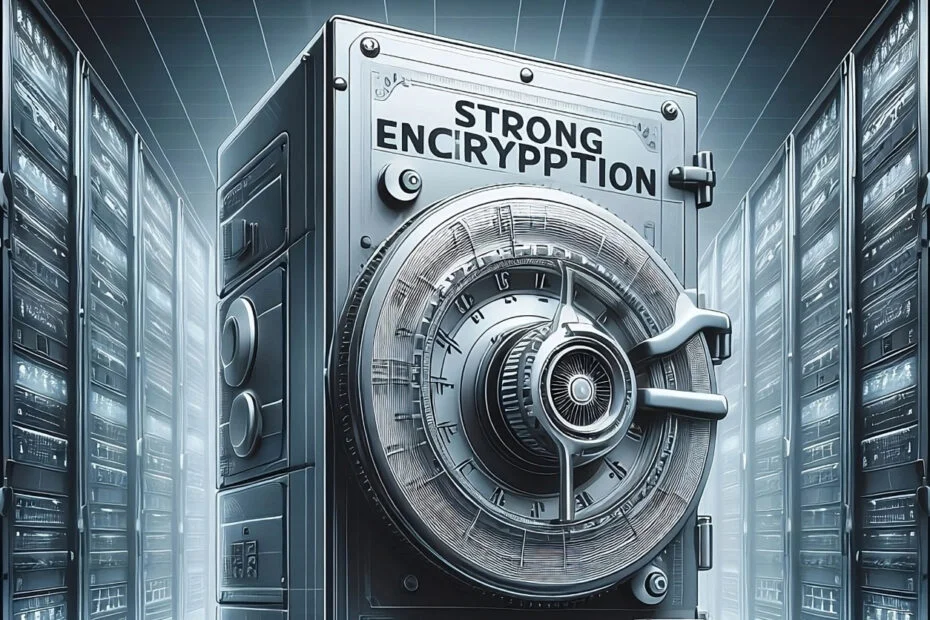A Powerful Duo. Review of an unbeatable alliance: Blockchain and data security, the perfect formula to protect your information.
In an increasingly digital environment, a lot of people are curious about how to streamline and optimize their regular tasks. One issue, though, is the mistrust that arises when divulging private and sensitive information online. Within this framework, Blockchain distinguishes itself by ensuring a dependable information transfer via a sophisticated coding and encryption mechanism. For further understanding, Blockchain is a technology that revolutionizes how information is shared and stored. Instead of relying on a centralized server, it uses decentralized networks to connect data.
Put differently, every new transaction is represented by a block of data. This in turn makes connections with earlier ones that gather data from earlier exchanges. The security of blockchain data derives from the fact that every block aggregates data from all previous transactions in addition to the current one. Therefore, if one is changed, the others wouldn’t match. Furthermore, you can not consider a network validated unless all its members participate.
Encryption in the Blockchain era: Ensuring information security
By the way, encryption is the process of encoding readable text into a secure code. It is a fundamental technology for protecting information from outside access. And it is a cornerstone of many cybersecurity protocols and procedures. Now, the primary purpose of encryption is to protect information from being viewed by people with unauthorized access. Encryption is critical for individuals and organizations whose private data is particularly sensitive or confidential.
In itself, encryption prevents your information from being tampered with. Encryption can make you feel more confident that the information you send and receive is authentic. Improving data integrity and authenticity is another critical benefit of encryption. Encryption is a staple of Blockchain technology to protect information, but it is just a more evolved system compared to others used in the past.
Why do we need this technology to store data?
Today, Blockchain solves the main problem, centralization, while offering several desirable features, such as a highly secure encryption system that makes it difficult for malicious users to access the data.
Ultimately, its advantages include the ability to ensure data integrity, improve threat detection and response, decentralize security management, and provide an additional layer of protection through the use of advanced cryptography. It is a promising tool for addressing current and future cybersecurity challenges and for building trust in an increasingly complex digital environment.
What is an encrypted database?
An encrypted database is a database that has been secured by applying encryption techniques to its data, meaning that the data transforms into a scrambled format you can not read without the proper decryption key. Encryption makes it much more difficult for unauthorized individuals to access and steal sensitive data.
There are several different ways to implement encryption in a database. Some popular methods include:
- Transparent data encryption (TDE): TDE encrypts the entire database file, including backups. This means the data remains encrypted even when you’re not using it.
- Column-level encryption (CLE): CLE encrypts only specific columns in a database table. This can be useful for protecting sensitive data, such as credit card numbers or social security numbers.
- Row-level encryption (RLE): RLE encrypts individual rows in a database table. This can be useful for protecting data that is highly sensitive, such as medical records or financial information.
In addition to encrypting data at rest, it is also important to encrypt data in transit. This means encrypting data as it is being sent between computers or networks. This can be done using a variety of protocols, such as TLS (Transport Layer Security) or SSL (Secure Sockets Layer). Encrypting databases is an important security measure that can help protect sensitive data from unauthorized access. By using strong encryption techniques and implementing them correctly, organizations can significantly reduce their risk of data breaches.
“Blockchain is a revolutionary technology that can ensure data integrity and transform the way we share and trust information in the digital world.”
Chris Burniske

